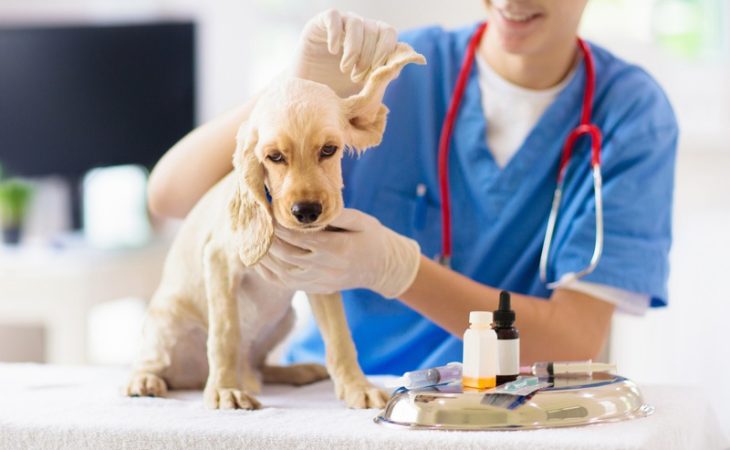There’s a common phrase: “Preventing a problem is better than fixing it.” This is especially true for our pets. We wish our pets could tell us when they’re ill, but they can’t. Often, we won’t know they’re sick until it’s serious. But early detection with lab tests can make a big difference in keeping our pets healthy and happy.
The Silent Sufferers and the Role of Lab Tests
Our pets are experts at hiding discomfort and illness. It’s a survival instinct that can serve them well in the wild but can pose a challenge for us in a domestic setting. Without the ability to communicate verbally, subtle changes in behavior or habits often indicate something might be off. This is where early detection through regular veterinary diagnostic lab testing becomes an invaluable tool in understanding a pet’s health.
The Fundamentals of Lab Testing
When we talk about lab tests for pets, we’re looking at various procedures that analyze samples from the body. Common examples include:
-
Blood tests
-
Urine analysis
-
Fecal exams
-
Skin scrapes
-
X-rays
These tests can provide us with a wealth of information about the inner workings of our pet’s body. They offer insights into the function of organs like the liver and kidneys, can help to uncover infections, and even detect the early stages of diseases such as diabetes or cancer.
Early Detection: A Game Changer
The power of early detection lies in its ability to discover potential health issues before they become major problems. It’s like being able to fix a small leak before it turns into a flood, saving both heartache and money. Here are a few reasons early detection is a cornerstone of preventative pet care:
-
Catching Diseases Early: Diseases often start without obvious symptoms. Lab tests can catch abnormalities that may indicate the early stages of an illness, often before the pet shows any physical symptoms.
-
Preventive Measures: By identifying a problem early, you can take steps to manage or correct it before it becomes severe.
-
Baseline Data: Even when tests come back normal, they provide valuable ‘baseline’ data for comparison in the future.
Tailoring the Testing
Only some pets will need the same kind of lab work. A young, healthy animal might only need an annual dog checkup, while an older pet or one with health issues, might require more frequent and specialized tests. Factors affecting the frequency and types of tests include age, breed, known health concerns, and lifestyle.
Building the Health Foundation
The early weeks of a pet’s life are crucial. Puppies and kittens should undergo initial health screenings to check for congenital diseases and parasites, and to establish baseline health data.
Maintenance and Monitoring
As pets enter their adult years, annual check-ups and lab tests become the norm, helping to ensure they’re at the peak of health or managing any ongoing conditions appropriately.
Keeping a Closer Eye
Senior pets can be more prone to health issues, so lab tests often become more frequent at this stage. This is to monitor their organ function closely and to catch any age-related diseases as early as possible.
Lab Tests and the Vet’s Expertise
When it comes to analyzing the results of lab tests, the interpretative skill of a veterinarian is key. Their expertise helps them understand the results’ significance within the context of the pet’s overall health, age, and breed. They can identify patterns or changes that might be missed by someone less experienced, ensuring your pet gets the right attention and treatment. Choosing a reputable Kent animal hospital with experienced veterinary professionals is pivotal in ensuring the best care for your companion.
Standard Tests and What They Tell Us
So, what exactly are these tests, and what do they tell us about our pet’s health? Let’s go through a few:
-
Blood Work: A Complete Blood Count (CBC) and blood chemistry panel can reveal anemia, infections, clotting issues, and the health of the liver and kidneys.
-
Urine Tests: These can help diagnose urinary tract infections, diabetes, dehydration, and kidney problems.
-
Fecal Exams: Essential for detecting intestinal parasites that can affect the pet’s well-being and can be transmitted to humans.
-
Imaging: Techniques like X-rays and ultrasounds allow us to see inside the body, revealing issues with organs, bones, and more.
What If Lab Tests Find Something?
It’s important to remember that not all abnormalities found through lab tests cause immediate concern. Sometimes, they warrant monitoring or minor adjustments in diet or lifestyle. However, if something more serious is detected, your vet will guide you through the following steps – further diagnostic tests, treatment options, or interventions. Having a trusted veterinarian in these moments is crucial for your pet’s health and peace of mind.
How You Can Help at Home
While lab tests are a vital component of pet health care, there are things you can do at home to support your pet’s well-being:
-
Keep track of any changes in your pet’s behavior, appetite, or habits and report them to your vet.
-
Stick to the recommended schedule of check-ups and tests for your pet’s life stage.
-
Ensure your pet has a balanced diet, plenty of fresh water, regular exercise, and lots of love.
Final Thoughts
Using lab tests to catch health problems early in pets is crucial. These tests help us understand what our pets can’t tell us and prevent minor issues from worsening. Regular tests, especially at reliable vet clinics, are critical to our pets’ well-being. Next time your vet recommends a check-up or blood test, think of the saying we started with and appreciate the benefits of looking after your pet’s health in advance.








